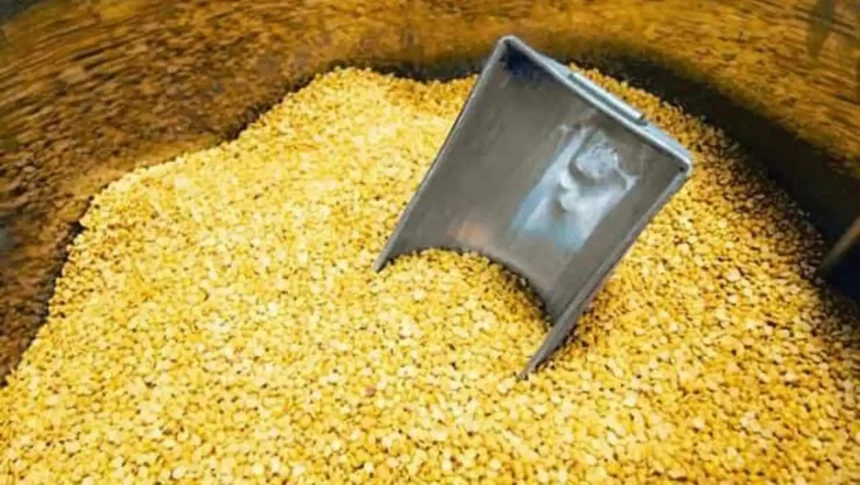In a bid to ensure adequate domestic supply and stabilize prices, the Indian government has announced the sale of tur dal from its buffer stock to eligible millers. This move comes as part of a calibrated and targeted strategy until imported stocks become available in the Indian market. The decision was conveyed through an official statement, affirming the government’s commitment to managing the availability and affordability of this essential food commodity.
To facilitate the sale process, the Department of Consumer Affairs has instructed the National Agricultural Cooperative Marketing Federation (NAFED) and the National Cooperative Consumers Federation (NCCF) to conduct online auctions among eligible millers. This will effectively augment the existing stocks for milling into tur dal, ensuring a sufficient supply for consumers across the country.
The decision to release tur dal from the national buffer stock reflects the government’s proactive approach to maintaining a balance between demand and supply in the market. Tur dal, also known as pigeon pea, is a staple food in many parts of India and a key ingredient in various traditional dishes. Its affordability and availability are of utmost importance, particularly for households with limited means.
By leveraging the buffer stock, which is a reserve of essential commodities maintained by the government, the authorities aim to prevent any undue price escalation due to supply constraints. The release of tur dal in a calibrated and targeted manner ensures that the market is adequately supplied until the arrival of imported stocks, thus alleviating any potential scarcity concerns.
The utilization of online auctions as a means of selling the buffer stock brings transparency and efficiency to the process. Eligible millers will have an opportunity to participate in the auctions, providing a fair chance for all stakeholders to procure tur dal for milling purposes. This approach not only maximizes the availability of tur dal for consumers but also promotes competition among millers, leading to better price realization and quality control.
The sale of tur dal from the buffer stock not only addresses short-term market requirements but also serves as a measure to maintain a stable supply in the long run. By effectively managing buffer stocks, the government can respond to fluctuations in demand and supply, ensuring that the market remains balanced and prices remain under control.
Furthermore, the involvement of NAFED and NCCF in the sale process highlights the cooperative nature of this initiative. These organizations play a vital role in connecting farmers and consumers, facilitating fair trade practices, and ensuring the welfare of both parties. Through their active participation in the auction process, NAFED and NCCF contribute to the overall stability of the agricultural and consumer sectors.
The government’s decision to release tur dal from the buffer stock in a calibrated and targeted manner showcases its commitment to addressing the needs of the people. By actively managing the supply of essential food items like tur dal, the authorities are taking proactive steps to safeguard the interests of consumers and maintain stable prices.
As the Indian market awaits the arrival of imported stocks, the sale of tur dal from the buffer stock is a crucial intervention that will bridge the gap between demand and supply. This approach not only ensures the availability of tur dal for milling but also emphasizes the government’s commitment to supporting the agricultural sector and ensuring food security for the nation.
The government’s decision to sell tur dal from its buffer stock through online auctions to eligible millers is a strategic move aimed at boosting domestic supply and stabilizing prices. This calibrated and targeted approach reflects the government’s commitment to addressing the needs of consumers and maintaining a balanced market. By leveraging the buffer stock and involving key cooperatives in the sale process, the government is taking proactive measures to ensure the availability and affordability of tur dal, an essential food item for millions of Indians.




